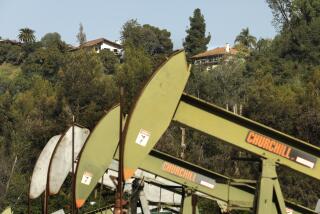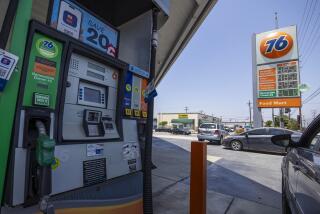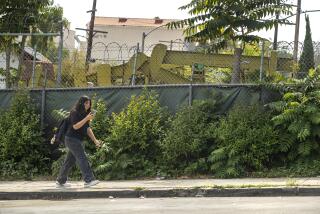Approval of Oil-Spill Liability Limits Due
- Share via
WASHINGTON — The Senate Thursday moved toward approval of a bill to increase sharply the limits on liability for oil spills and establish a new federal fund that would provide up to $1 billion per spill for clean-up costs and damages.
The measure, a response to the worst oil spill in U.S. history in Alaska last March, also would authorize the President to direct follow-up efforts and provide for triple damages levied on companies that refuse clean-up orders.
It also would set up teams along every region of the Atlantic, Pacific and Gulf Coasts to speed response to oil spills. The measure provides for mandatory screening of tanker crewmen for alcohol use and sets down stiff regulations for tanker navigation.
At the same time, the bill would not interfere with states’ authority to establish their own clean-up funds or to penalize companies that cause oil spills.
Further Toughening
The Senate refused by narrow margins to toughen the bill further, shelving by a 51-48 vote a proposal to require double bottoms for newly constructed oil tankers and turning aside 52 to 48 a move to remove all limits on liability for oil spills.
Sen. Brock Adams (D-Wash.) tried without success to get Senate approval for double-bottomed tankers, arguing that they would prevent many oil spills and minimize damage from others. A Coast Guard study, he said, indicated that spillage from the Exxon Valdez off Alaska would have been reduced by 60% if it had a double bottom when it struck a reef in Prince William Sound.
“It’s time to act,” Adams said. “The Exxon Valdez shook us out of complacency.” Opponents argued, however, that a less stringent provision in the bill for double bottoms was adequate. It required such bottom protection except in cases in which the secretary of transportation certified that it was not necessary.
All Clean-Up Costs
Sen. Slade Gorton (R-Wash.) argued that limits on liability in the bill should be removed to require those responsible for oil spills to pay all of the clean-up costs without any ceiling on their outlays.
Foes of Gorton’s proposal, however, said the bill’s sharp increase in liability limits and its $1-billion fund were a more reasonable response.
The measure would impose a new limit of $500 per ton on tankers for spilled oil, or a minimum of $10 million, compared to a limit of $150 per ton or $250,000 minimum under present law. There would be a similar increase in the liability limits for barges and other oil-carrying vessels.
Sen. Pete Wilson (R-Calif.) won a battle to knock out a provision of the bill that would have imposed a $100-million limit on clean-up costs from oil spills of offshore drilling platforms. As a result, the present law that provides for unlimited oil costs would remain unchanged.
Opponents of Wilson’s amendment failed, 66 to 34, to kill it before the Senate adopted it by voice vote.
Meantime, the House Public Works and Transportation Committee adopted a similar bill to raise financial liability for oil spills but decided, contrary to the Senate, to bar the states from imposing their own liability requirements.
The Senate bill would finance the cleanup fund from a 3-cent-a-barrel tax to be paid by oil producers.
More to Read
Sign up for Essential California
The most important California stories and recommendations in your inbox every morning.
You may occasionally receive promotional content from the Los Angeles Times.













